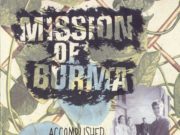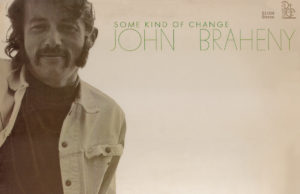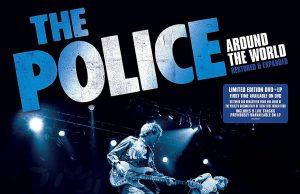A ton of Tony Wilson, a little bit of Eurovision, some chit-chat with Steve Reich and a look at jazz and race: That’s all they wrote for next week. Read all about ’em:
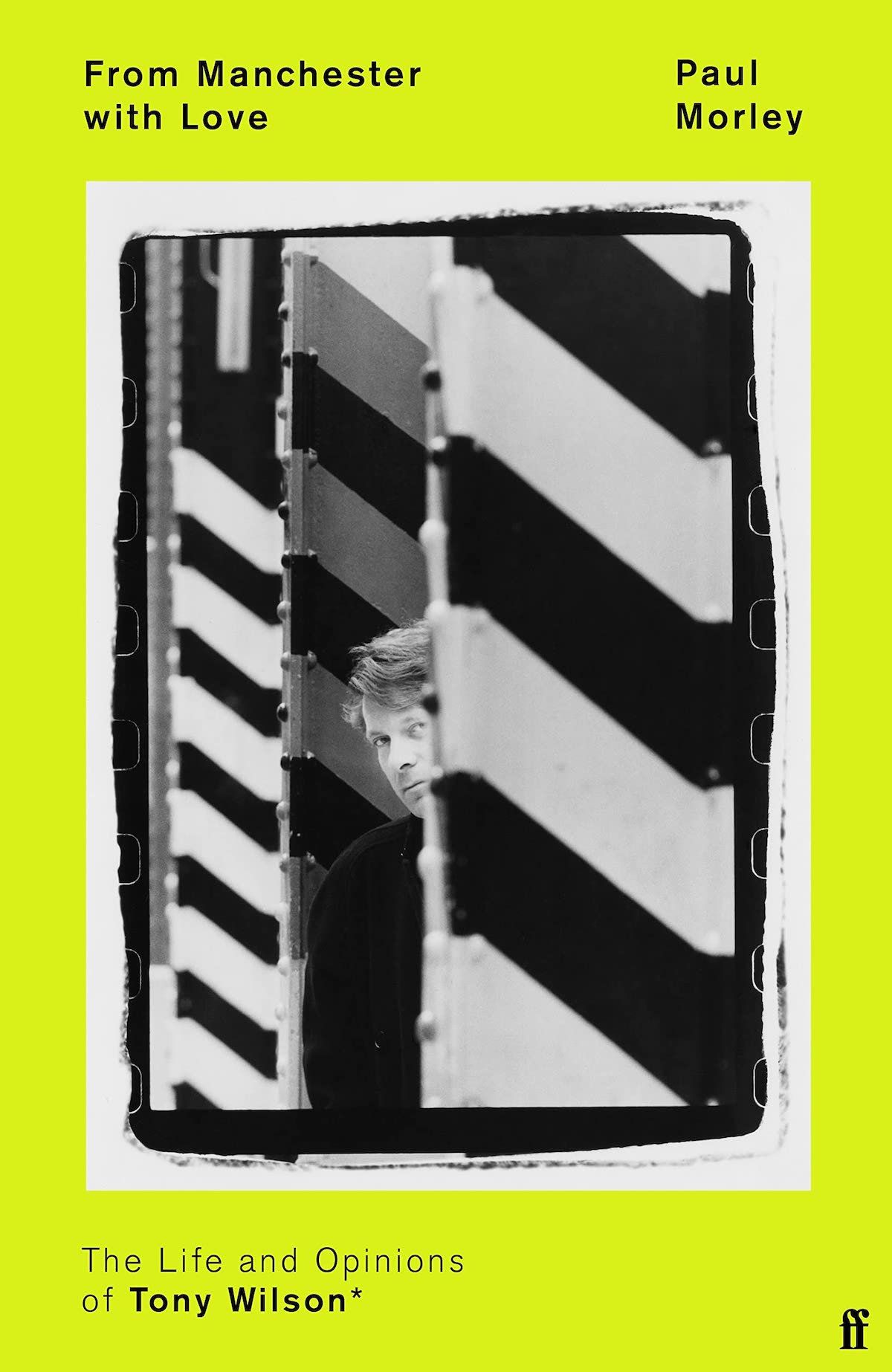 From Manchester with Love: The Life and Opinions of Tony Wilson
From Manchester with Love: The Life and Opinions of Tony Wilson
By Paul Morley
THE EDITED PRESS RELEASE: “To write about Tony Wilson, aka Anthony H. Wilson, is to write about a number of public and private characters and personalities, a clique of unreliable narrators, constantly changing shape and form. At the helm of Factory Records and The Haçienda, Wilson unleashed landmark acts such as Joy Division and New Order into the world as he pursued myriad other creative endeavours, appointing himself a custodian of Manchester’s legacy of innovation and change. To Paul Morley he was this and much more: bullshitting hustler, flashy showman, aesthetic adventurer, mean factory boss, self-deprecating chancer, intellectual celebrity, loyal friend, shrewd mentor, insatiable publicity seeker. It was Morley to whom Wilson left a daunting final request: to write this book. From Manchester With Love, then, is the biography of a man who became eponymous with his city, of the music he championed and the myths he made, of love and hate, of life and death. In the cultural theatre of Manchester, Wilson broke in and took centre stage.”
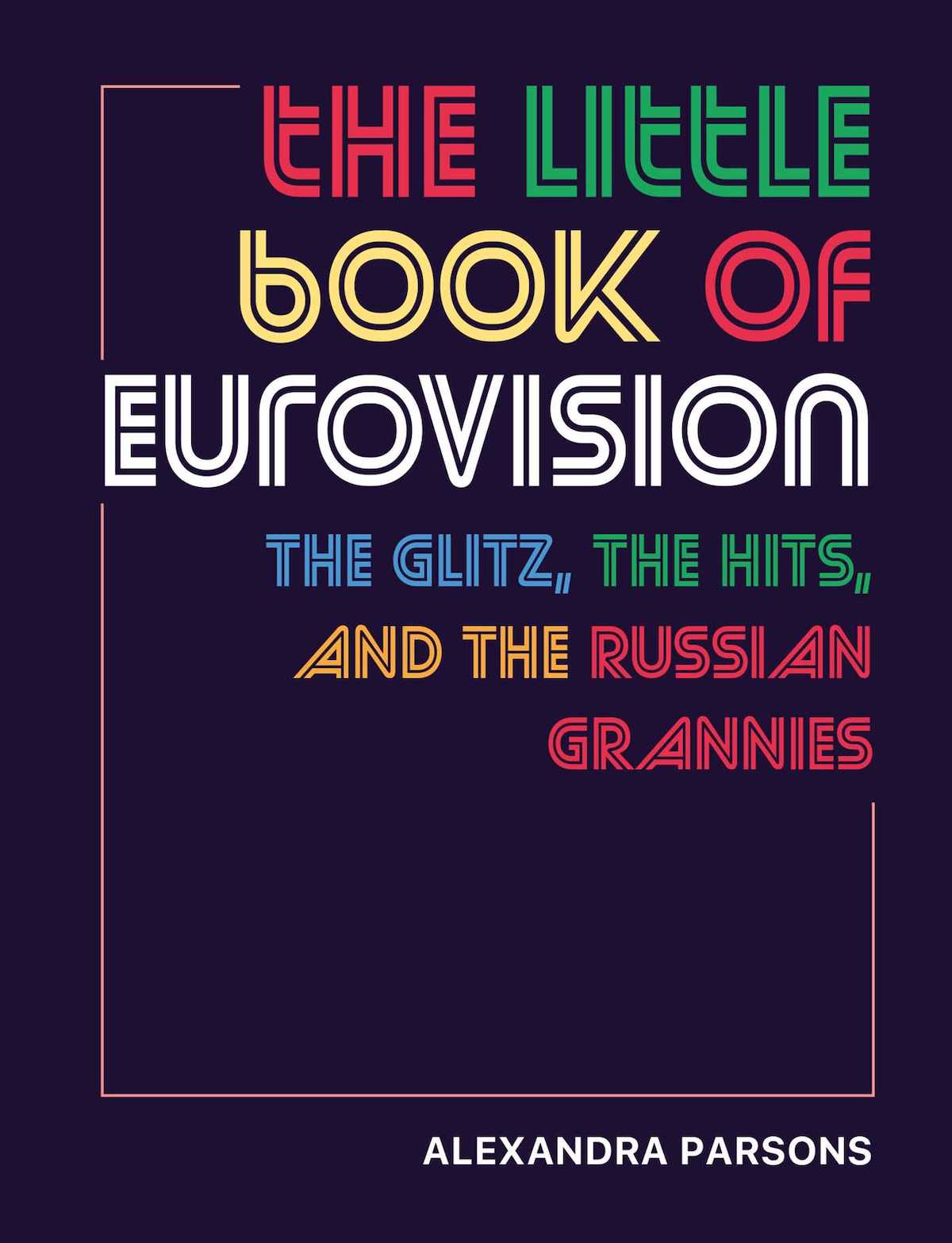 The Little Book of Eurovision: The Glitz, The Hits, & The Russian Grannies
The Little Book of Eurovision: The Glitz, The Hits, & The Russian Grannies
By Alexandra Parsons
THE EDITED PRESS RELEASE: “The Eurovision Song Contest is one of the world’s longest-running TV programs, and has become a much loved tradition across the world. From the spandex to the glitter, ABBA to Lordi, and the unexpected winners to the “nil points” losers, The Little Book of Eurovision will take you through the best and the “Wurst” moments of the last 65 years. Eurovision has come a long way from its very first competition in 1956, with just seven entrants and a studio audience of 200 people. Now people gather for Eurovision parties, complete with food and drink from the competing countries, and even dress up in finery to match the feathers, sequins, and leather on stage. Whether you are a cynic, a true believer or just a disappointed Brit (again), you’ll love reliving the highs and lows of Eurovision through these pages.”
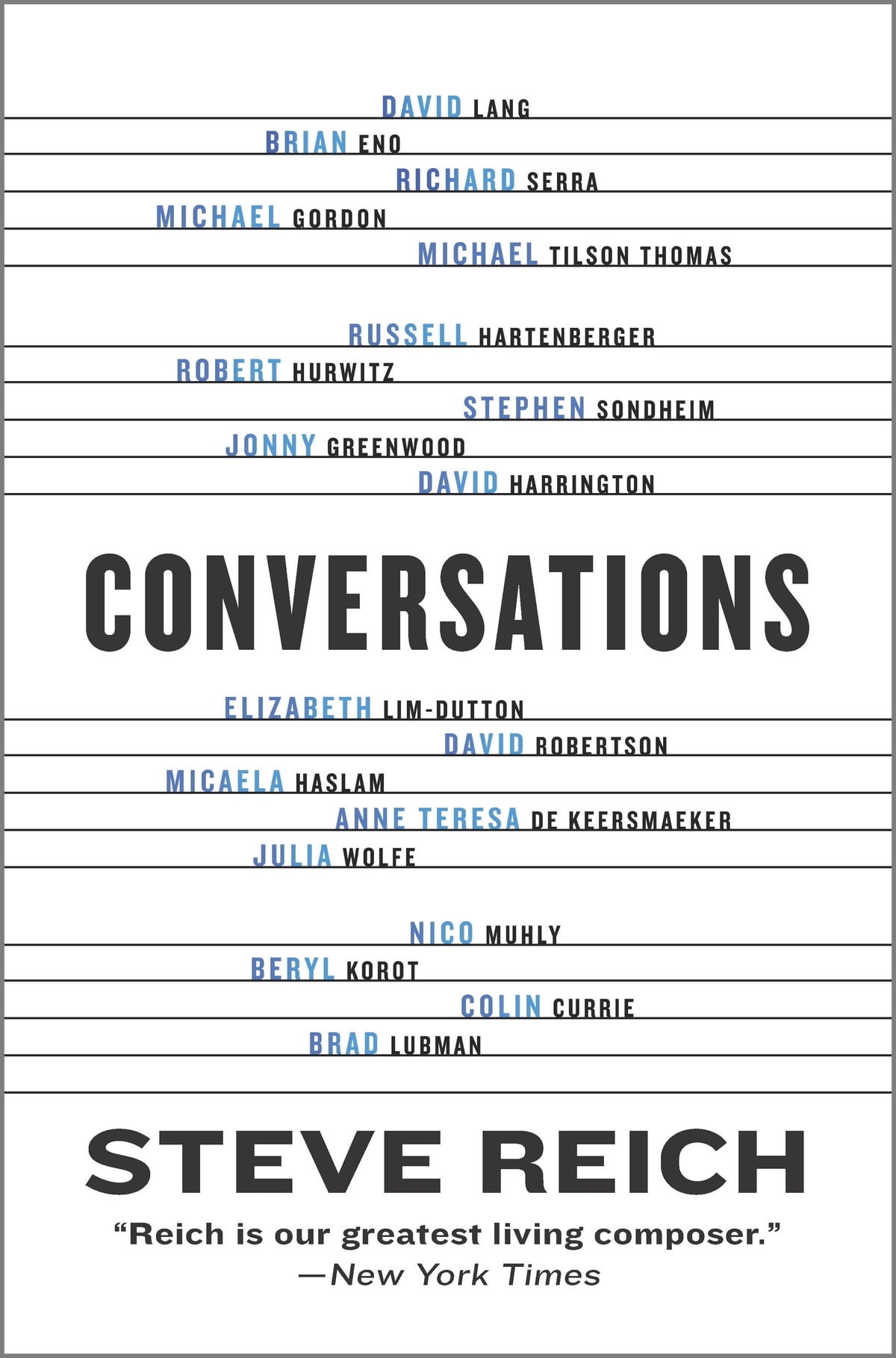 Conversations
Conversations
By Steve Reich
THE EDITED PRESS RELEASE: “Steve Reich is a living legend in the world of contemporary classical music. As a leader of the minimalist movement in the 1960s, his works have become central to the musical landscape worldwide, influencing generations of younger musicians, choreographers and visual artists. He has explored non-Western music and American vernacular music from jazz to rock, as well as groundbreaking music and video pieces. He toured the world with his own ensemble and his compositions are performed internationally by major orchestras and ensembles. Now Reich sits down with past collaborators, fellow composers and musicians as well as visual artists influenced by his work to reflect on his prolific career as a composer as well as the music that inspired him and that has been inspired by him, including: David Lang, Brian Eno, Richard Serra, Michael Gordon, Michael Tilson Thomas, Russell Hartenberger, Robert Hurwitz, Stephen Sondheim, Jonny Greenwood, David Harrington, Elizabeth Lim-Dutton, David Robertson, Micaela Haslam, Anne Teresa de Keersmaeker, Julia Wolfe, Nico Muhly, Beryl Korot, Colin Currie and Brad Lubman.”
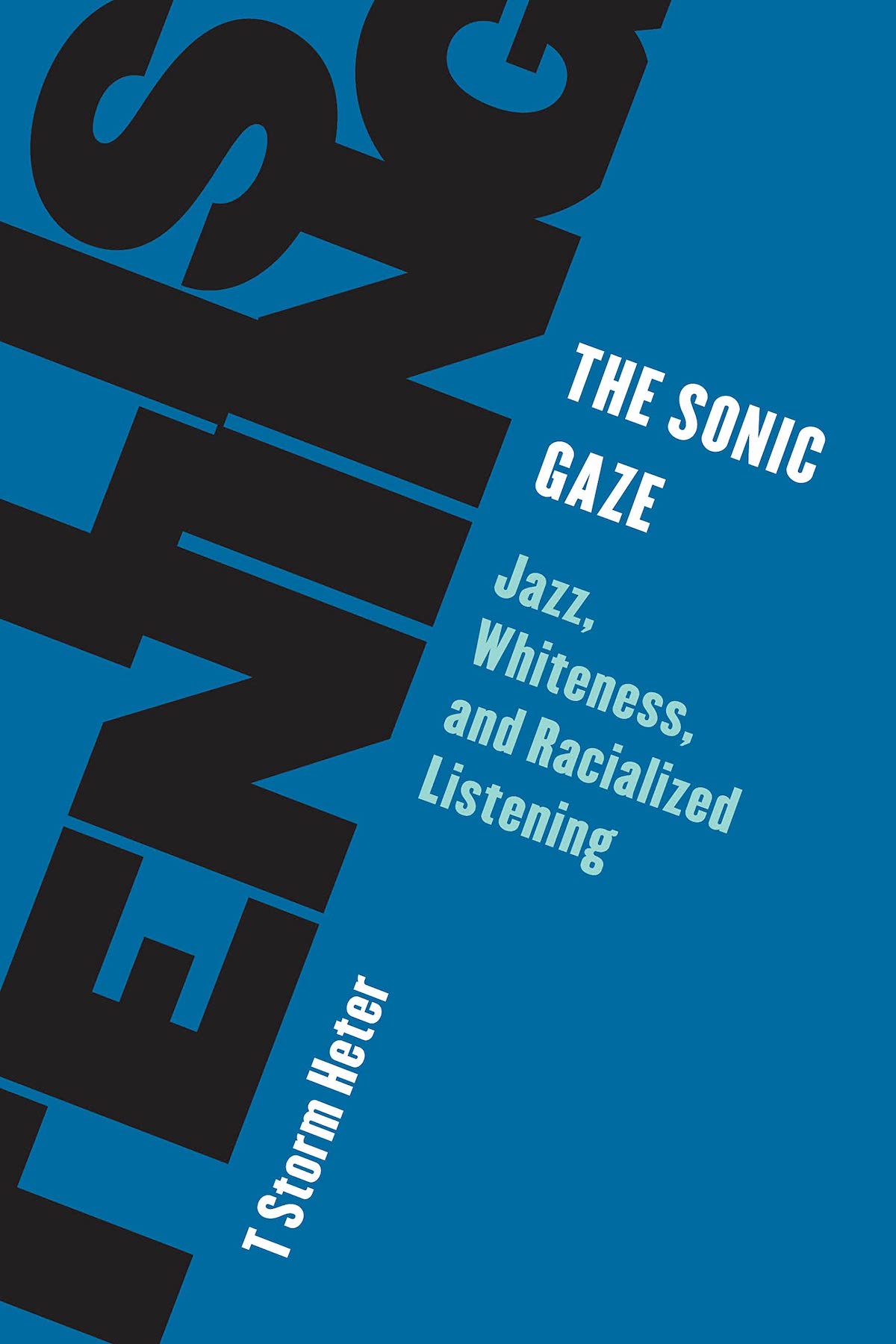 The Sonic Gaze: Jazz, Whiteness, and Racialized Listening
The Sonic Gaze: Jazz, Whiteness, and Racialized Listening
By T. Storm Heter
THE EDITED PRESS RELEASE: “A central criticism emerging from Black and Creole thinkers is that mainstream, white dominated, culture, consumes sounds and images of Creole and Black people in music, theater, and the white press, while ignoring critiques of the white consumption of black culture. Ironically, critiques of whiteness are found not only in black literature and media, but also within the blues, jazz, and spirituals that whites listened to, loved, collected, and archived. This book argues that whiteness is not only a visual orientation; it is a way of hearing. Inspired by formulations of the race and whiteness in the existential writings of Frantz Fanon, Simone de Beauvoir, Jean-Paul Sartre, W.E.B. Du Bois, Richard Wright, Lewis Gordon, Angela Davis, bell hooks and Sara Ahmed, T Storm Heter introduces the notion of the white sonic gaze. Through case studies and musical examples from the history of American jazz, the book builds a phenomenological archive to demonstrate the bad habits of ‘white listening’, drawing from black journalism, the autobiographies of Creole musicians, and the lyrics and sonic content of early jazz music emerging from New Orleans. Studying white listening orientations on the plantation, in vaudeville minstrel shows, and in cabarets, the book portrays six types of bad faith white listeners, including the white minstrel listener, the white savior listener, white hipster listener, and the white colorblind listener. Connecting critical race studies, music studies, philosophy of race and existentialism, this book is for students to learn how to critique the phenomenology of whiteness and practice decolonial listening.”




